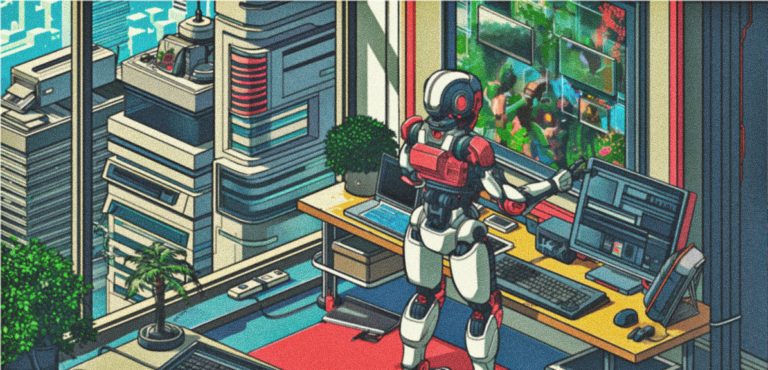
How the GenAI Job Market is Shaping 3 Industries
The impact of a new genAI job market , one where rote tasks are virtually eliminated from workflow and humans/machines are expected to collaborate, is beginning to fan its wings across industries. Yes, the old adage is true – AI will dually lead to job displacement and unemployment as well as create new job opportunities and increase efficiency.
However this conversation shifted when the genAI development race began.
This new technology has raised both optimism and anxiety in every industry, especially given a report by Goldman Sachs that predicts as many as 300 million jobs could be affected by genAI. The potential impact of this technology on the job market is a significant concern, and it is crucial to explore the implications and opportunities that come with it. Let’s zoom into three specific industries and explore the potential impact of the genAI job market.
Banking
The banking sector deals with vast amounts of data and transactions, making it a complex industry. However, generative AI can automate many processes such as monitoring transactions and providing detailed financial advice on saving and spending efficiently. This will enable staff to focus on other tasks. Morgan Stanley uses OpenAI chatbots to organize its wealth management database, making it easier for advisors to access data and research. The firm has also trained GPT-4 to make its internal chatbot more helpful for financial advisors, enabling them to assist more people more quickly. By leveraging generative AI, the banking sector can streamline processes, improve customer service, and enhance the overall experience for both advisors and clients.
According to a 2023 report by Forrester Research, a research and consultancy firm, generative AI technology will have a greater impact on jobs than the jobs it replaces. The report predicts that by 2030, the technology will influence over 11 million jobs in the United States, 4.5 times more than the jobs it will eliminate during the same period. By “influence”, the report implies that generative AI will play a role in reshaping, retraining, and upskilling the current workforce to incorporate generative AI tools into their daily tasks.
IT
While automation has been part of IT for a while, generative AI brings something new to the table. According to a recent survey by Foundry, 57 percent of IT organizations have already identified multiple areas where generative AI could be applied.
Simple and repetitive tasks, such as basic data entry and processing functions, are the first in line for automation. However, it’s not just entry-level jobs at risk – even some of the common duties carried out by software developers may soon be taken over by AI. In fact, a recent analysis by Indeed found that software and coding jobs are the most exposed to replacement by AI, as generative AI is adept at performing 95 percent of the skills required for these jobs. As a result, IT professionals must be prepared for the potential impact of AI on their roles and the industry.
Media
The media and entertainment industry has always relied on creativity to engage audiences. However, with the arrival of generative AI, this sector has undergone a significant transformation. Generative AI has advanced capabilities to produce various forms of content such as blogs, social media posts, website copy, sales emails, and advertisements, making it the new powerhouse in the industry. Even news outlets are jumping on the bandwagon, using this technology to improve their content and engagement with their audience.
For example, BuzzFeed introduced AI-generated personality quizzes and games into their content. The media outlet observed a positive impact of their investment in AI technology as audience engagement increased by 40 percent compared to traditional written quizzes. But BuzzFeed isn’t the only one embracing this technology. Other publishers, such as the UK’s largest publisher, Reach, are also exploring AI for content creation. At the same time, entertainment giants like Disney have established task forces to study how AI can be applied across their vast properties.
It’s fascinating to think that the next piece of content you read, or watch may have been created by a machine rather than a human. With AI’s ability to generate diverse and compelling content, we can only imagine where this technology will take the media and entertainment industry in the future.
Distilled
Companies must prioritize the benefits of generative AI and proactively seek ways to integrate it into their operations. This way, they can harness the full potential of this technology and pave the way for a future where humans and AI collaborate seamlessly, thus achieving unparalleled productivity and efficiency.